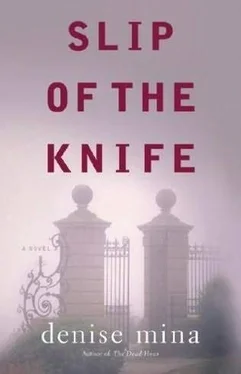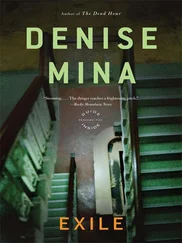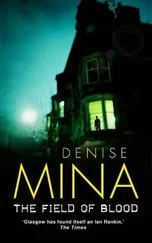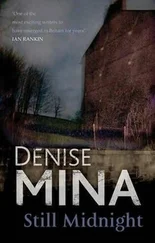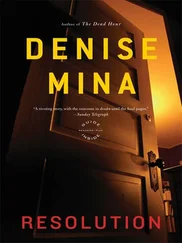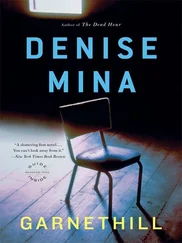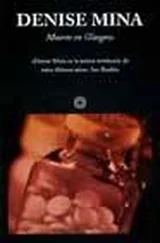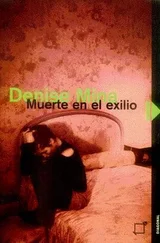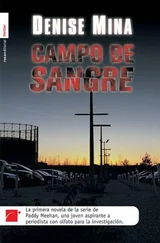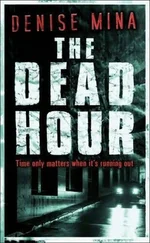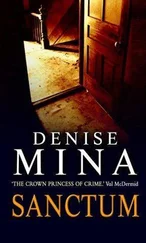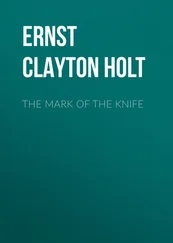“Can I leave Pete with you, George? Until they pick Callum up, I don’t want Pete staying where he could find him.”
“Well, I don’t know what Sandy ’ll say but… I suppose I could take him to work with me.”
“Could you?”
“I’ll get one of the production girls to look after him.”
Sandra didn’t work and Paddy knew she had a cleaning lady who came in three days a week. She allowed herself the luxury of a snide aside, since she’d had a shock. “What does Sandra do all day?”
He looked out of the picture window. “Shops for clothes. Takes them back. Shops for more clothes.”
She already had a guilty aftertaste in her mouth. “Good,” she said, bringing the conversation to a close.
He slid towards her on the sofa and softened his voice, inclining his head towards hers. “D’you ever think about us?”
It should have made her feel special, but she knew him too well to mistake it for lingering affection. He would do some variation on the move to whichever woman he was left alone with. She looked up wearily.
“George, give me a fucking break. I don’t want to have a fight.”
He slid back in his seat, offended. “Are you and Dub together?”
“Don’t be ridiculous.”
Burns was as suspicious as a faithless man could be. He could never accept that most people made friends and kept them, met lovers and stayed with them. His world was in a perpetual state of tectonic shift and he wouldn’t believe that it wasn’t so for everyone else.
“So much for the Three Musketeers,” he said caustically.
She didn’t have the energy to be angry. “No one ever called us the Three Musketeers but you, and you’re the one who let both of us down. You left me to move in with that bint Lorraine, and you got another manager when Dub told you to turn down the TV show. He was right, wasn’t he?”
He chewed his tongue for a moment and shrugged. “Suppose. Who’s he handling now?”
“Loads of people,” she lied. “Word got out that he advised you against it and the phone’s never stopped ringing.”
“This new guy-he wants me to cash in on the TV show, tour the workingmen’s clubs.”
“Don’t do that.”
“I’m not going to.” He looked sheepish. “But the money’s good.”
The clubs were a graveyard. He’d never get back on the circuit again and that was where the radio and television executives went looking for talent to pin shows on.
“Don’t do it,” Paddy told him. “It’s a dead end.”
“Would Dub talk to me, do you think?”
“You want him to manage you again?”
“Possibly.”
“I don’t know. He’s pretty hurt by what you did. If you’d left him and found a new manager that would have been one thing, but you did it behind his back.”
George dipped his chin and looked up at her, puppy-dog penitent, asking her to fix it. Paddy knew that Dub was signing on and the dole paid next to nothing. He represented a number of comics but none of them had half of George’s talent. Onstage Burns was the man every woman wanted to be with and every man wanted to drink with, but offstage his persona was a bit more problematic. He was unpopular and not just because the TV show was crap: he kept sleeping with people’s wives just because he could and had a habit of launching into his act in the middle of a conversation, reducing the listeners to passive audience members, obliging them to laugh.
“You should talk to Dub, see what he says.”
“I never see him.”
“Phone him.”
“He’s never in.”
It was a power play: Dub was in all the time but Burns wanted Dub to come to him.
“Are you troubled at all by the fact that your son and I came here in mortal danger and now we’re discussing your career?”
He laughed at himself, the kindest side to him, and she sat forward. “I’ll say good-bye to Pete.”
But Burns could see she was still shaken. “Sit for a minute, Pad.” He put his hand on her knee, leaving it there, and she was glad of the warmth.
Paddy could well imagine how much Pete would see of his father, building up to the recording of the show tomorrow night, just as she could imagine the fury of some woman working her way up in TV who was expected to give up her proper job and be an impromptu nanny for George H. fucking Burns’s spoiled kid. She didn’t give a shit.
He squeezed her hand kindly. “I’m proud of the wee man. You’re doing a great job.”
In a moment of weakness she pecked a kiss at his fingers, the white leather sofa squeaking unattractively under her arse.
TWENTY-FIVE. BETTER BUY A GUN
The taxi dropped her in the street, at the opposite end of the car park from the News building so she could get back to her car without being seen.
The car park was a dirty stretch of ground, not even flattened for the cars. It was concreted over near the building but here, on the far fringes, the ground was potholed and dusty. A city tenement had been pulled down here, a long time ago, whether because of a German bomb or general decay she didn’t know. The pavement was the only part still standing, a ring fence around the empty space. Cars were clustered up near the front of the building, more now than there used to be. A cab rank had been set up at one end, near the road into town, because the paper’s budget had been cut back dramatically and the first thing to go was the pool of cars with staff drivers idling by the front door.
She walked carefully along the pavement, moving at a normal pace, hoping not to be seen. Upstairs the early shift would still be on, the final few pages being set and finished. All it would take was for Bunty or the Monkey to glance out of the window and spot her and she’d be dragged upstairs again, made to write an article about a fictitious visit to Callum. They’d be desperate for any copy about him now. His shoe size would command a front-page lead.
Level with her car, she left the pavement and crossed the dusty ground towards it. She had parked in the same spot this morning as she had been in the other night, when she left Mary Ann smoking fluently in the car. Mary Ann smoking, upset about a boyfriend. It jarred, not just because she was a nun, but because she was a child to them all. Not just a child of the Church but of all the Meehans, and it wasn’t to her benefit but to theirs. She was a token of their childhood, a nostalgic reminder of how they were.
Both the Press Bar doors were open to the summer night and a warble of chat and the chink of glasses sounded warm and friendly. Paddy would have loved to be in there, trouble free, gossiping and having a laugh among her own.
She smiled at the thought as she drew level with the car and stopped, her toes kicking up brown dust from the dry ground. The boot had been broken into, the entire lock drilled out, leaving a gaping black hole thick as a man’s thumb in the carcass of the car.
Reaching forward, she put her finger into the hole and lifted the boot. It opened lightly, the spring mechanism taking the weight after her initial pull. A plastic bag with dry cleaning she had yet to hand in was there, one of Pete’s footballs and a pair of his trainers were there, and a squashed box for apples that she had used to take some frozen shopping to her mother’s was there too, but Terry’s portfolio was gone. His photographs were gone; his notebook full of shorthand that he had tucked protectively into the spine was gone too.
A breeze picked up, swirling grainy dust around her bare ankles. She stared into the messy boot. It was the photographs they wanted, and she knew completely, whatever Knox or Aoife said, that it was McBree. She rummaged in her handbag. The photocopies were in there. They weren’t very good, she didn’t have a proper picture of the woman anymore, but she did have a photo of McBree standing at the door of the car facing a fat man in a dark suit. This story could be huge.
Читать дальше
